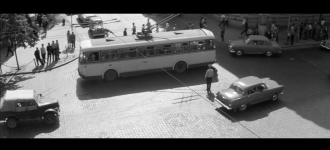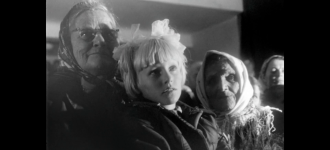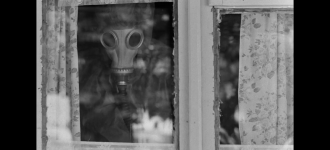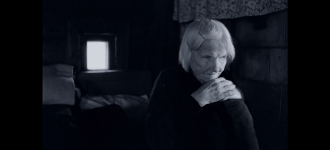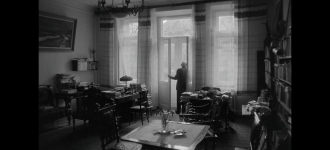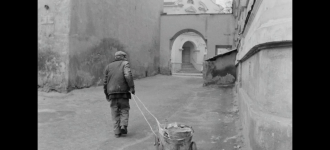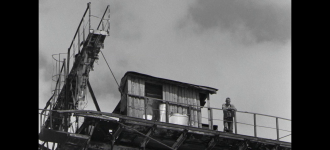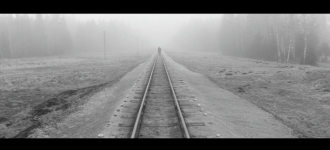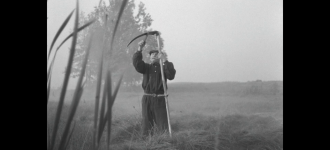In Search of Lost Time
One of the definitions of the Latin term “documentum” is proof or testimony. Thus, documentary film is not only a nonfictional record of an immediate reality, but also a proof or testimony of a time gone by. In other words, to film a documentary is to salvage what will inevitably disappear in the abyss of time. Emerging in the early 1960’s, this is precisely what the “Lithuanian poetic documentary” movement tried to achieve with their distinct and, at the time, innovative films which clearly broke off from the official, socialist realist tradition of the post-World War II Soviet Union.
The poetic documentary movement, however, didn’t have a clearly defined and unified cinematic style. It was more the sum of different cinematic practices championing the possibility of speaking through images and expressing oneself in a specific language of cinema. Instead of trying to construct a propaganda vehicle, filmmakers such as Robertas Verba (considered the founder of Lithuanian poetic documentary film), Henrikas Šablevičius and Edmundas Zubavičius, whose documentaries will be screened at the festival, chose a more complex approach to reality and the time they were living in. For instance, in the film, The Dreams of the Centenarians, officially made on the occasion of the 100th anniversary of Lenin’s birth, the audience sees wrinkled elderly people sharing stories about love, life and faith— lebenswelt—instead of the “brave new world” of communist society.
The next generation of Lithuanian filmmakers, like Audrius Stonys, Rimvydas Leipus, and Kornelijus and Diana Matuzevičiai, who started their careers just prior to the collapse of the Soviet Union, clearly continued to tread a similar path as their predecessors. This is unsurprising if one considers that Šablevičius, one of the prominent figures in the Lithuanian poetic documentary school, taught them. Paradoxically, these filmmakers have focused their gaze not on the paradigmatic socio-political shift of the twentieth century, but rather on what Audrius Stonys calls the “inner landscapes” of individuals. Thus, their work can be characterized by extended periods of silence, long shots, a personal and ethical approach to their subjects, associative montage, close observation of reality, and so on.
While it is quite difficult to define Lithuanian poetic documentary, it is clear that Jonas Mekas, a Lithuanian émigré, had a somewhat similar vision of the role of cinema, even if he was working in an absolutely different context than Lithuanian filmmakers of the first and second generation. His approach is perfectly manifested in his film, Reminiscences of a Journey to Lithuania (1972). In the film, he and his brother, Adolfas Mekas, return to their homeland for the first time since World War II. Mekas was not interested in capturing the present-day Lithuania on film. On the contrary, his task was to show it through his own memories. Therefore, the image of Lithuania that Mekas creates is a crossroads where subjective and empirical realities meet—where different layers of time are inseparable.
The Lithuanian poetic documentary program will be presented by film critic and scholar Narius Kairys. It consists of three separate blocks of documentaries: 1) from the 1960’s 2) from the 1990’s, and 3) Jonas Mekas’s Reminiscences of a Journey to Lithuania.
Narius Kairys, programmer at Inconvenient Film Festival

